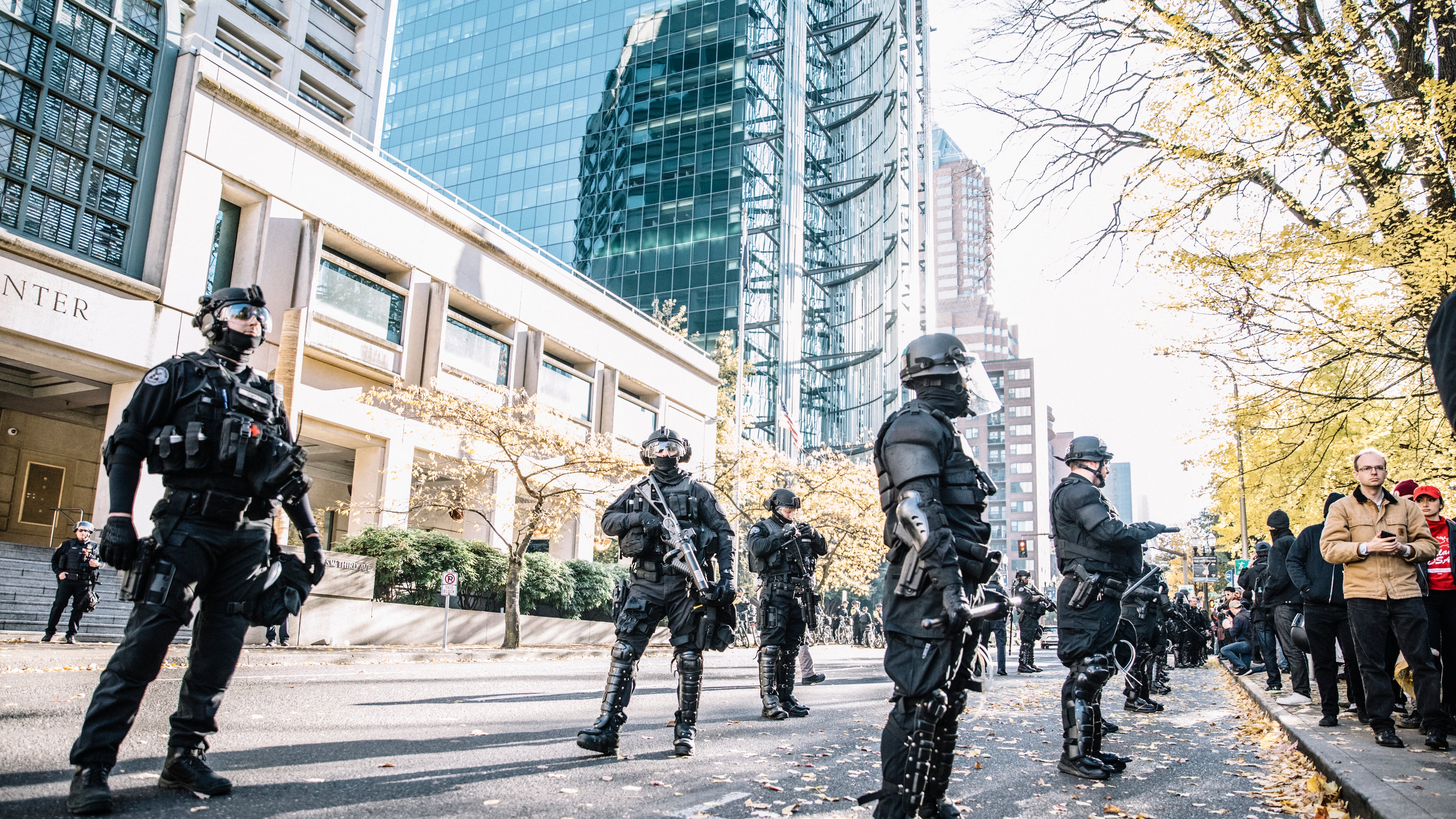Last month, Mayor Ted Wheeler and the Portland Police Bureau offered reporters behind-the-scenes access to the city's police incident command center during a far-right protest planned for Nov. 17.
But to gain exclusive access, the hand-selected journalists would have to sign a nondisclosure agreement that controlled what they could and could not report from inside the police nerve center. WW first reported on those ground rules, and has now obtained that document via a public records request.
What were reporters invited to see?
At the urging of Wheeler's office, the Police Bureau arranged to allow reporters from three local news outlets to sit inside the room where commanding officers made decisions about how to police a protest that had potential to turn violent. The mayor's staff says he wants to create more opportunities for reporters to observe the police at work. But the Police Bureau and City Attorney's Office had concerns about protecting highly confidential and sensitive information the reporters might observe inside the room.
What did the reporters have to agree to?
The city's nondisclosure agreement barred the journalists from reporting information about undercover officers and informants as well as personal information like names, birthdays and addresses that might appear in police records used in the command center. Reporters were also prohibited from repeating anything an officer said was "confidential." It required a reporter to get permission before quoting anyone inside the incident command post. The Police Bureau says its goal was to protect information governed by federal confidentiality rules.
What happened?
All three outlets—The Oregonian, the Portland Tribune and KGW-TV—declined the invitation, for various reasons. The mayor's office says it reconsidered its approach after the newspapers and TV station refused to participate under the city's terms. "We hear the concerns and hope media sees from our office it was about increasing access," says Sophia June, a spokeswoman for Wheeler's office. "We'll continue to do that no matter what."
Why does it matter?
The mayor's office and the Police Bureau were trying to counteract criticism from the right and left about how riot cops decide whether to wade into protests. But they did so by asking reporters to sign an NDA—a new tactic in Portland, and one that raised questions about City Hall's commitment to transparency. "The problem is when the details of how they try to do it results in no meaningful access at all," says Vera Eidelman, staff attorney with the ACLU's speech, privacy and technology project.

